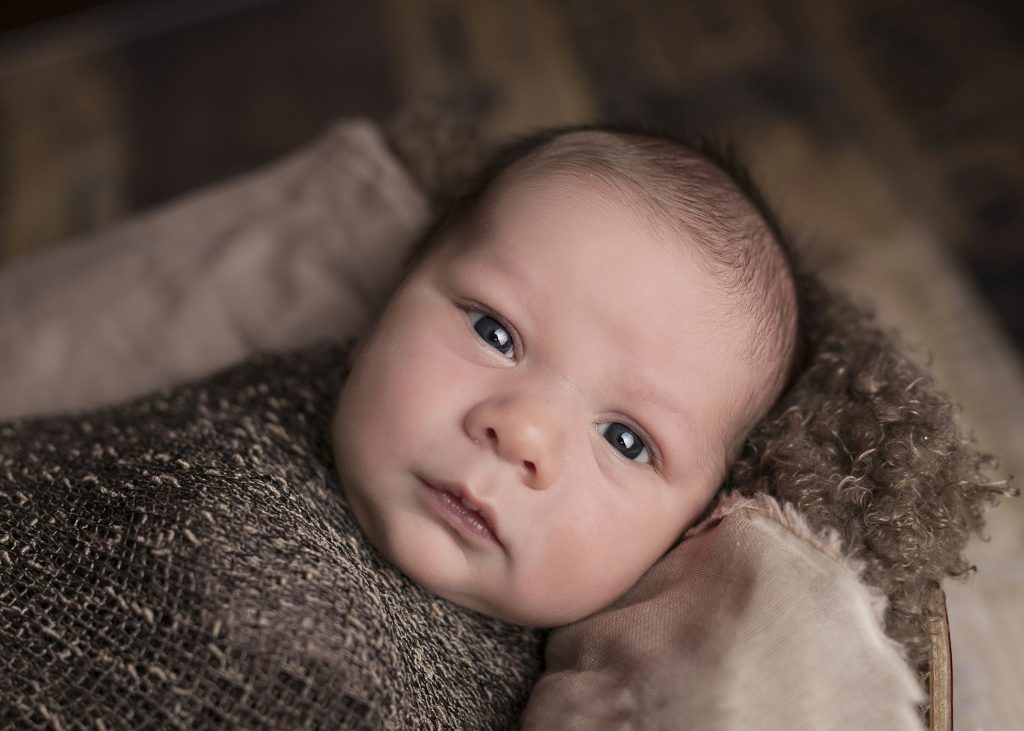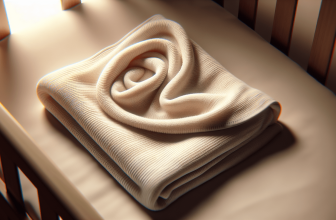Are you a new parent looking for essential baby skincare tips to navigate the ever-changing seasons? Look no further! In this article, we will provide you with some helpful advice on how to keep your little one’s delicate skin healthy and protected all year round. From moisturizing techniques to choosing the right clothing, we’ve got you covered. So, get ready to embrace the changing seasons while keeping your baby’s skin smooth, soft, and radiant. Let’s dive in!
Choose appropriate skincare products
Understand your baby’s skin type
When it comes to caring for your baby’s skin, it’s essential to understand their skin type. Babies have delicate and sensitive skin, which means they require gentle and mild products. Some babies may have dry skin, while others may have more oily or sensitive skin. By understanding your baby’s skin type, you can choose appropriate skincare products that will effectively cleanse, moisturize, and protect their skin without causing irritation or discomfort.
Use mild, fragrance-free cleansers
Babies have sensitive skin that can easily become irritated by harsh chemicals and fragrances. It’s important to use mild, fragrance-free cleansers that are specifically formulated for baby’s delicate skin. These cleansers are designed to gently cleanse the skin without stripping away natural moisture or causing any irritation. Look for products that are labeled as hypoallergenic and free from dyes, parabens, and other potential irritants.
Moisturize daily
Daily moisturization is key to keeping your baby’s skin healthy and hydrated. Choose a gentle, hypoallergenic moisturizer that is free from fragrances and harsh chemicals. Apply the moisturizer to your baby’s skin immediately after bathing to lock in moisture and keep their skin soft and supple. Pay extra attention to areas that are prone to dryness, such as elbows, knees, and cheeks. Regular moisturization can help prevent dryness, itching, and discomfort.
Protect from the sun
Babies have delicate and sensitive skin that is more susceptible to sunburn and long-term damage from the sun’s UV rays. It’s important to protect your baby’s skin from the sun by using appropriate sun protection measures. Keep your baby out of direct sunlight, especially during peak sun hours, and dress them in lightweight, breathable fabrics that cover their skin. Apply a broad-spectrum sunscreen with an SPF of 30 or higher to any exposed areas, such as the face and hands. Remember to reapply sunscreen every two hours, or more often if your baby is sweating or in water.
Avoid harsh chemicals
Read labels carefully
When choosing skincare products for your baby, it’s crucial to read labels carefully. Look for products that are specifically formulated for babies and are free from harsh chemicals and potential irritants. Avoid products that contain ingredients like alcohol, artificial fragrances, sulfates, and parabens. Opt for natural and organic products whenever possible, as they are less likely to cause skin irritation or allergic reactions.
Minimize the use of perfumed products
Fragrances can be a common cause of skin irritation for babies. Minimize the use of perfumed products, such as scented lotions, shampoos, and soaps. Fragrances can be harsh on delicate baby skin and may cause redness, itching, or rashes. Choose unscented or fragrance-free products to reduce the risk of irritation. If you do use scented products, make sure they are specifically formulated for babies and are labeled as hypoallergenic.
Avoid products with strong preservatives
Some skincare products contain strong preservatives, such as formaldehyde releasers, that can be harsh on your baby’s skin. These preservatives are added to extend the shelf life of products but can potentially cause skin irritation or allergic reactions. Read labels carefully and avoid products that contain ingredients like formaldehyde, quaternium-15, or DMDM hydantoin. Opt for products with natural preservatives or those that are labeled as preservative-free.
Stay away from artificial colors
Artificial colors can also be potential irritants for your baby’s skin. Avoid skincare products that contain artificial colors, as they can cause allergic reactions or sensitivity. Stick to products that are free from artificial dyes and colorants. Natural and organic skincare products are typically free from artificial colors and are a safer choice for your baby’s delicate skin.

Maintain a consistent skincare routine
Cleanse gently twice a day
Maintaining a consistent skincare routine for your baby helps keep their skin clean and healthy. Gently cleanse your baby’s skin twice a day, using a mild and gentle cleanser specially formulated for babies. Use lukewarm water and a soft washcloth or your hands to cleanse their skin, being careful not to scrub or rub too vigorously. Pat their skin dry with a soft towel after cleansing to avoid irritation.
Apply moisturizer immediately after bathing
After cleansing, it’s important to apply a moisturizer to your baby’s skin, especially after bathing. Moisturizers lock in moisture, prevent dryness, and help maintain the skin’s natural barrier. Choose a gentle and hypoallergenic moisturizer that is specifically formulated for babies. Apply the moisturizer to your baby’s entire body, paying extra attention to areas prone to dryness, such as their elbows, knees, and cheeks.
Protect skin during diaper changes
Diaper changes can be a prime opportunity to care for your baby’s skin. Use gentle, unscented wipes or warm water and a soft washcloth to clean your baby’s diaper area. After cleaning, apply a thin layer of a diaper rash cream or ointment to protect their skin from moisture and irritation. Choosing a product with zinc oxide can help soothe and prevent diaper rash.
Keep nails trimmed
Keeping your baby’s nails trimmed is an important part of their skincare routine. Babies have soft and delicate skin, and long nails can accidentally scratch and damage their skin. Trim your baby’s nails regularly using baby-sized nail clippers or a nail file. Take extra care to avoid cutting the skin around the nails, and ensure a smooth and rounded edge to minimize any potential scratches.
Watch out for signs of seasonal skin issues
Dry and flaky skin
During the changing seasons, it’s common for babies to experience dry and flaky skin. Dry skin can be caused by cold weather, low humidity levels, or excessive use of heating systems. To combat dryness, moisturize your baby’s skin regularly with a rich, hypoallergenic moisturizer. Avoid using harsh soaps or hot water when bathing, as they can further dry out the skin. If dryness persists, consult a pediatrician for further guidance.
Chapped lips and cheeks
Chapped lips and cheeks are another common skin issue during colder seasons. Protect your baby’s lips and cheeks by applying a thin layer of petroleum jelly or a baby-safe lip balm. Avoid excessive licking of the lips, as it can worsen chapping. Dress your baby in warm, breathable clothing and use a humidifier in their room to add moisture to the air.
Heat rash and sweat dermatitis
During warmer seasons, heat rash and sweat dermatitis can occur due to increased heat and moisture. To prevent these conditions, dress your baby in lightweight, breathable fabrics that allow air circulation and moisture evaporation. Keep your baby’s skin dry, especially in skin folds and areas prone to sweating, by gently patting with a soft towel. If a heat rash or sweat dermatitis develops, apply a mild, hypoallergenic cream to soothe the affected area.
Cold weather-induced eczema
Cold weather can trigger or worsen eczema flare-ups in some babies. To manage cold weather-induced eczema, keep your baby’s skin well moisturized with a hypoallergenic cream or ointment. Avoid using harsh soaps or hot water when bathing, as they can further dry out the skin. Dress your baby in layers to keep them warm without overheating, and ensure they are wearing breathable fabrics to allow air circulation.
Protect baby’s skin from extreme temperatures
Dress your baby appropriately
Dressing your baby appropriately for the weather is crucial to protecting their skin from extreme temperatures. During cold weather, dress your baby in layers to keep them warm without overheating. Use soft and breathable fabrics that provide insulation while allowing moisture evaporation. In hot weather, dress your baby in lightweight and loose-fitting clothing that covers their skin while allowing air circulation.
Use a humidifier in dry environments
Dry environments can strip moisture from your baby’s skin, leading to dryness and discomfort. Using a humidifier in your baby’s room can help add moisture to the air and prevent their skin from drying out. Opt for a cool mist humidifier to avoid any risk of burns or accidents. Regularly clean and maintain the humidifier to prevent the growth of mold and bacteria.
Shield from the sun and wind
Both the sun and wind can have a damaging effect on your baby’s skin. Protect their skin from the sun by keeping them in shaded areas, especially during peak sun hours. Use a wide-brimmed hat, sunglasses, and lightweight clothing to shield their face and body from harmful UV rays. In windy conditions, use a soft and breathable blanket or a stroller cover to protect your baby’s skin from windburn.
Be mindful of indoor environmental factors
Avoid overheating the room
Overheating the room can lead to excessive sweating and discomfort for your baby. Maintain a comfortable room temperature, usually between 68 to 72 degrees Fahrenheit (20 to 22 degrees Celsius). Dress your baby in appropriate clothing for the room temperature and avoid using heavy blankets or excessive layers that can cause overheating.
Keep air circulation flowing
Proper air circulation is essential for maintaining a healthy indoor environment for your baby. Open windows or use fans to improve air circulation. Avoid direct exposure to fans or air conditioning that may cause drafts or dryness. Regularly ventilate the room to prevent the buildup of dust and allergens.
Clean regularly to reduce dust and allergens
Dust and allergens can irritate your baby’s skin and trigger allergies or respiratory issues. Clean your baby’s room regularly to reduce the presence of dust and allergens. Vacuum carpets and rugs, dust surfaces, and regularly wash bedding and curtains. Use a damp cloth for cleaning to avoid stirring up dust particles.
Use a gentle detergent for baby’s clothes
The detergent you use for washing your baby’s clothes can have an impact on their skin. Opt for a gentle, hypoallergenic detergent that is specifically formulated for baby’s sensitive skin. Avoid using fabric softeners or dryer sheets that may contain fragrances or chemicals that can irritate your baby’s skin.
Protect baby’s skin during outdoor activities
Apply sunscreen with SPF 30 or higher
When taking your baby outdoors, it’s crucial to protect their delicate skin from the sun’s harmful UV rays. Apply a broad-spectrum sunscreen with an SPF of 30 or higher to any exposed areas, such as the face, hands, and feet. Choose a baby-safe sunscreen that is free from harsh chemicals and fragrance-free. Reapply sunscreen every two hours or more often if your baby is sweating or in water.
Dress your baby in lightweight, breathable fabrics
Choosing the right clothing for outdoor activities is essential to prevent your baby from overheating or becoming too cold. Dress your baby in lightweight, breathable fabrics that provide sun protection without causing excessive sweating. Use layers to adjust their clothing based on the temperature and consider using hats and sunglasses for added protection.
Stay in shaded areas during peak sun hours
To minimize your baby’s exposure to the sun, it’s best to stay in shaded areas, especially during peak sun hours. The sun’s rays are the strongest between 10 a.m. and 4 p.m. Seek shade under trees, umbrellas, or use a stroller with a sunshade when spending time outdoors. Remember that even on cloudy days, the sun’s UV rays can still cause damage to your baby’s skin.
Keep your baby hydrated
Proper hydration is crucial for your baby’s overall health and skincare. Make sure your baby stays hydrated by offering them small amounts of water frequently, especially during outdoor activities. If your baby is less than six months old and exclusively breastfed or formula-fed, they generally do not require additional water. However, consult with your pediatrician for specific recommendations.
Seek medical advice for persistent skin issues
Consult a pediatrician for severe skin problems
If your baby experiences persistent or severe skin problems, it’s important to seek medical advice from a pediatrician. Some skin issues may require specialized care or prescribed treatments. A pediatrician can properly diagnose and provide appropriate medical guidance based on your baby’s specific condition.
Get professional advice for chronic skin conditions
Chronic skin conditions, such as eczema or psoriasis, may require ongoing professional advice and treatment. If your baby has been diagnosed with a chronic skin condition, consult a dermatologist or pediatric dermatologist for specialized care. They can recommend specific skincare routines, prescribe medicated creams or ointments, and provide valuable guidance on managing your baby’s condition effectively.
Follow recommended treatments and medications
If your baby is prescribed any treatments or medications for their skin condition, it’s crucial to follow the recommended guidelines. Be sure to apply any prescribed creams or ointments as directed, and follow the dosage instructions for any medications. If you have any questions or concerns about the prescribed treatments, consult with your pediatrician or dermatologist for clarification.
Pay attention to your baby’s diet
Ensure a balanced diet with essential nutrients
A well-balanced diet is essential for your baby’s overall health, including their skin health. Ensure that your baby is receiving a variety of nutrient-dense foods from all food groups. Breast milk or formula should be the primary source of nutrition for infants under 12 months. As your baby transitions to solid foods, offer them a variety of fruits, vegetables, whole grains, lean proteins, and healthy fats.
Consult a doctor for food allergies or sensitivities
Some babies may have food allergies or sensitivities that can manifest as skin issues, such as eczema or hives. If you suspect your baby may have a food allergy or sensitivity, consult with their pediatrician. They can perform allergy testing or recommend an elimination diet to identify and manage any food triggers.
Promote hydration throughout the day
Proper hydration is essential for your baby’s skin health. Encourage your baby to drink fluids throughout the day, whether it’s breast milk, formula, or water (if they are over six months old). Offer small sips of water between meals and during outdoor activities to prevent dehydration. Adequate hydration helps maintain the skin’s moisture balance and prevents dryness.
Avoid excessive sugar consumption
Excessive sugar consumption can have a negative impact on your baby’s overall health, including their skin. Limit the intake of sugary foods and beverages in your baby’s diet. Choose nutritious and natural snacks over processed sweets. Excessive sugar consumption can contribute to inflammation and may worsen skin conditions such as eczema or acne.
Practice good hygiene habits
Regularly wash baby’s hands and toys
Good hygiene habits are important for maintaining your baby’s skin health. Regularly wash your baby’s hands using a gentle and mild cleanser or baby wipes. This helps remove dirt, germs, and potential irritants from their hands. Additionally, clean your baby’s toys and play surfaces regularly to prevent the buildup of bacteria or allergens.
Cleanse pacifiers and bottles properly
Pacifiers and bottles come into direct contact with your baby’s mouth, making proper cleaning essential. After each use, wash pacifiers and bottles using warm, soapy water. Rinse thoroughly to ensure all soap residue is removed. If necessary, use a bottle brush to reach into narrow areas of bottles. Sterilize pacifiers and bottles periodically according to the manufacturer’s instructions.
Avoid sharing personal care items
Avoid sharing personal care items, such as towels or washcloths, between family members to minimize the risk of spreading bacteria or potential skin irritants. Each family member should have their own set of personal care items to maintain good hygiene practices and prevent the transfer of germs.
Keep a clean and safe diaper changing area
Maintaining a clean and safe diaper changing area is crucial for your baby’s skin health. Use a waterproof changing pad or mat that can be easily wiped clean. After each diaper change, thoroughly clean your baby’s bottom using gentle wipes or warm water and a soft washcloth. Allow their skin to air dry or pat it dry with a clean towel before applying a clean diaper.
In conclusion, taking care of your baby’s skin requires choosing appropriate skincare products, avoiding harsh chemicals, maintaining a consistent skincare routine, and being mindful of environmental factors. By understanding your baby’s skin type, using mild and fragrance-free cleansers, moisturizing daily, and protecting from the sun, you can help keep their skin healthy and resilient. Additionally, watching out for signs of seasonal skin issues, protecting your baby’s skin from extreme temperatures, and practicing good hygiene habits contribute to their overall skincare. If you notice persistent or severe skin problems, seek medical advice, and pay attention to your baby’s diet to promote healthy skin from the inside out. Remember, a comprehensive approach to baby skincare is essential for their comfort and well-being.










